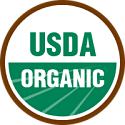-------- Forwarded Message --------
|
Promoting Economic
Justice for Family-Scale Farming
|
 |
|
News From the
Cornucopia Institute
|
|
|
NOSB
Meeting: Conflicts of Interest and Lack
of Research
|
|
|
Cornucopia
testified and reported on behalf of real
organics at the National Organic
Standards Board (NOSB) Spring Meeting in
La Jolla, California. Rife with politics
from its opening day,
corporate consultants testified without
disclosing their employers and, in an
unprecedented move, a hospitalized board
member was allowed to vote via Skype
while not present at the meeting despite
missing all public testimony on the
subject. Of the 200+ National List
materials poised for review, the board
voted on materials sunsetting in 2016
and a number of petitions for new or
revised-use compounds.
Methionine, a controversial synthetic
amino acid fed to poultry as a growth
promoter, was touted by
industrial-scale egg representatives
as necessary for nutrition and to
prevent chickens from becoming
aggressive and injuring each other.
Although methionine is essential for
bird health, some organic egg producers
report that proper pasture and flock
size, along with feed
naturally high in methionine,
enable chickens to meet their
nutritional requirements without a
synthetic version of the nutrient.
Methionine was reapproved, and at higher
administration levels.
Amid scientific testimony on negative
environmental impacts and human health
risks, the synthetic leavening agent
SAPP (sodium acid pyrophosphate) was
relisted. The NOP now requires critical
information well in advance of the
actual meeting. Consideration of human
health impacts, raised at this meeting,
was considered untimely. This
disallowance stands in stark contrast to
last fall's meeting, when a certifier,
acting on behalf of one agribusiness
client, requested Tragacanth gum
remain on the list and presented a
letter from that business. That
information was considered timely and
NOSB reapproved the material, one more
example of economic interests trumping
human health concerns.
|
|
READ MORE
|
Washington
Post Interviews Miles McEvoy During
Spring Meeting — Won't Say Organics Is
Better
|

Source: USDA
|
Interviewed
during the National Organic Standards
Board (NOSB) meeting, National Organic
Program (NOP) Deputy Administrator Miles
McEvoy claimed that discussion of
possible health benefits of organic food
isn’t “relevant” to the role of the NOP
(this from the top federal official
charged with regulating and promoting
organics?). McEvoy expressed
satisfaction with the USDA’s current
oversight of organics worldwide,
although reports of fake
organic imports continue to
surface. His reaction to Cornucopia’s aerial photography
and complaints about organic factory
farming? “It really doesn’t indicate one
thing or another.”
When questioned about conflicts of
interest that may occur when farmers pay
inspectors to inspect, McEvoy said, “We
ensure that there are no conflicts of
interest that the certifiers have when
they conduct these inspections.”
Meanwhile corporate organics, sometimes
represented by certifiers, lobbied and
retained their favored materials on the
National List though they may no longer
meet the law’s requirements of necessity
for production and/or safety for the
environment and humans. We suspect
McEvoy’s bosses feel they are getting a
good value from his generous federal
salary. Is the organic community?
|
|
READ MORE
|
Want
to Support Real Organics?
Purchase Authentic Food for Your Family
|

Source: iStock
|
Cornucopia’s
scorecards rate organics in the
marketplace and are continually updated,
helping consumers choose brands and
products produced using the best organic
farming practices and ethics. Factory
farm production versus family
farm/imports versus US production. We
have recently made a few additions. We
added Trimona to the yogurt scorecard,
a “four-spoon” rated yogurt. Did you
know, ounce for ounce, it is often
cheaper to buy a quart of plain organic
yogurt than many of the conventional,
highly sweetened yogurts? Rumiano Cheese
was added to our dairy scorecard as
a "four-cow" dairy. We are currently
aware of 32 awesome "five-cow" dairies
and 44 excellent "four-cow" organic
dairy brands. In carrageenan news:
Orgain, Grassworks, So Delicious,
Julie’s ice cream, Annie’s and Earth
Balance have all removed the possible
carcinogen from products in the last six
months, as shown on our carrageenan buying
guide. Remember carrageenan is
often used in gel capsule production,
grocery rotisserie chicken,
ready-to-drink (liquid) infant formula
and as a clarifying agent in beer. Visit
our website and click
on the Scorecards tab for a
drop-down menu.
|
|
VIEW THE SCORECARDS ON
OUR WEBSITE
|
Urban
Ag in the Heartland
|

Source: Big Muddy
Urban Farm
|
Whether via
community gardens, vacant lots,
backyards, municipal orchards, rooftop
gardens, indoor systems or other means,
urban agriculture is a growing trend—or,
more accurately, a returning practice.
Long before WWII victory gardens grew
40% of all vegetables in the U.S., from
ancient times cities have produced at
least some food within their borders.
Big Muddy Urban Farm is reviving this
tradition in Omaha, Nebraska. A
collective of seven producers, all in
their 20s, Big Muddy raises fruit,
vegetables, herbs and chickens at five
sites within a three-mile radius. The
agrarian enterprise is revitalizing an
inner-city neighborhood while educating
more urban growers.
|
|
READ MORE
|
Antibiotic
Resistance Promoted in Conventional Ag
|

Source: TP Martins
|
In the last
few years, several studies have looked
at how antibiotics, heavy metals,
herbicides and environmental factors
such as drought, dust and wind combine
to increase antibiotic resistance in
pathogenic bacteria. One study
illustrates how the commonly used
herbicides dicamba, glyphosate and 2,
4-D increase antibiotic resistance in
strains of E. coli and Salmonella by
regulating gene _expression_. The bacteria
which might otherwise be killed by
antibiotics are effectively immunized
against antibiotics when exposed to
these herbicides. Another study showed
that heavy metals, which are routinely
added to conventional livestock feed to
encourage growth, can also promote
antibiotic resistance. These problematic
herbicides and heavy metals are widely
used in conventional agriculture.
Consumers can mitigate antibiotic
resistance by supporting organic
agriculture and organic farmers and
purchasing organic food and textiles.
|
|
READ MORE
|
|
|
Having
trouble viewing this? Click here for a web version.
Click here to unsubscribe.
Read
recent Enews
newsletters from The Cornucopia Institute.
|
The Cornucopia
Institute
is a nonprofit organization engaged in research
and educational activities supporting the
ecological principles and economic wisdom
underlying sustainable and organic agriculture.
Through research and investigations on
agricultural and food issues, The Cornucopia
Institute provides needed information to family
farmers, consumers, stakeholders involved in the
good food movement, and the media.
|
|
P.O. Box 126 Cornucopia, Wisconsin 54827
TEL: 608-625-2000
| FAX: 866-861-2214
| www.cornucopia.org
|
|

|











